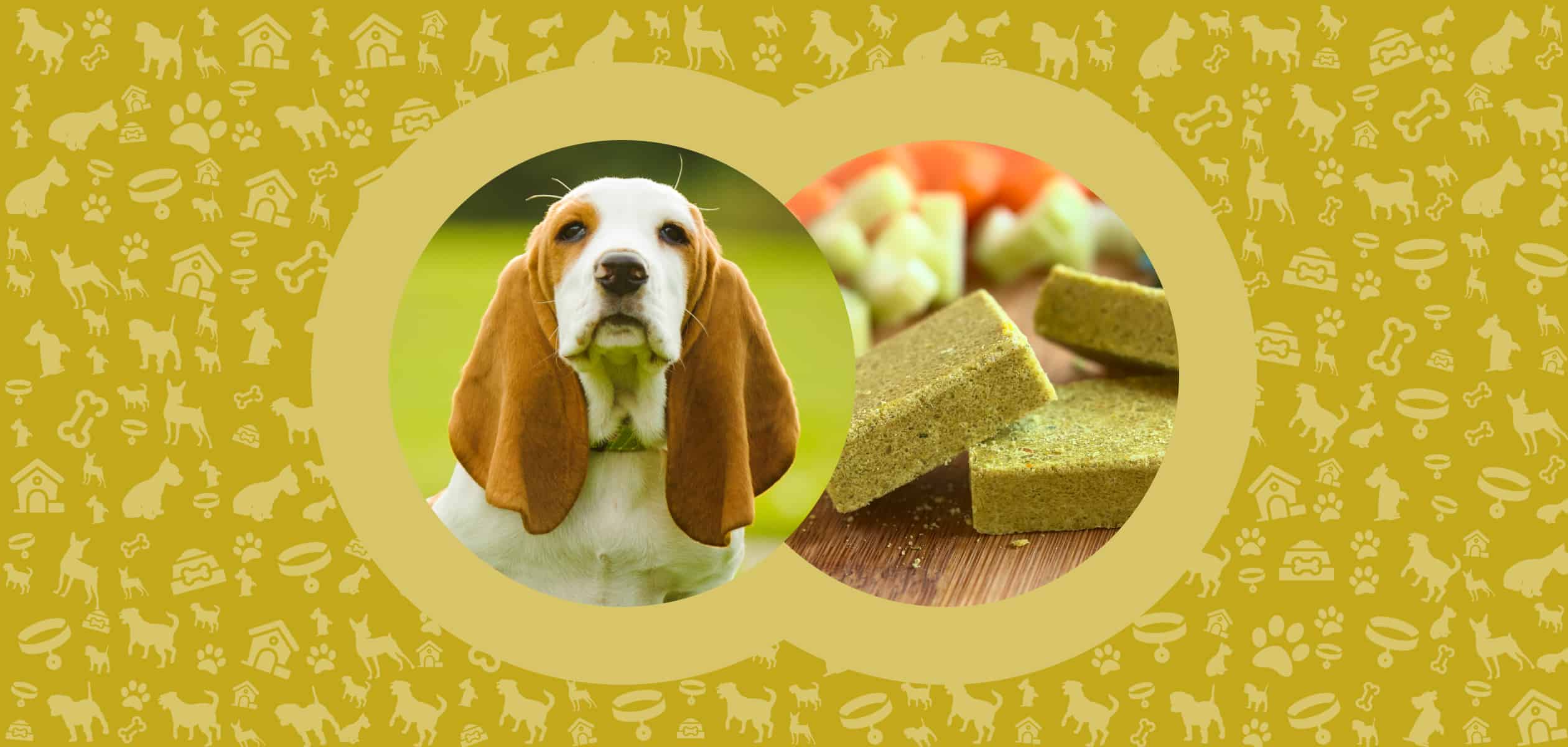Introduction
Arugula is a herb that’s widely used in cuisines across the world. It has a variety of vitamins and minerals, and due to its potent taste, people seem to love it. But can dogs eat arugula? Is it safe for them?
Those are the questions we are answering in today’s article. We’re also looking at several ways in which you can give your pet arugula, in case you’re wondering.
Is Arugula Good for Dogs?
Arugula, also called rocket or roquette, is a member of the same family (Brassicaceae) as other plants you might know by now, such as mustard, cauliflower, and Brussels sprouts.
This herb is packed in essential nutrients that can help your dog’s body function better, especially in the lack of alternative vitamin and mineral supplementation. Here are the benefits of giving your dog arugula every now and then.
Calcium
If you’ve ever been a dog parent before, you probably know that vets tend to recommend calcium and phosphorus supplementation, especially in the first year of every pet’s life.
This is because all dogs and some breeds, in particular, are more prone to developing rickets, a condition where their bones become brittle, and they start experiencing discomfort in ordinary activities like walking or running through the park.
Arugula contains calcium, and this nutrient is essential for muscles, bones but also to ensure that your dog’s nerves are working properly.
Vitamin C
This vitamin is widely known for making it possible for a mammal’s immune system to work better. It is one of the most potent antioxidants known to humankind until now, and it can be found in a variety of foods, including arugula.

Vitamin K
Unlike other nutrients, vitamin K makes it possible for your dog’s blood to clot faster and better.
The reason we are noting this is that, in the event of an accident, your pet will sustain trauma and might even experience hemorrhage in their organs — and if they have enough vitamin K in their system, they might just as well survive until you get to the animal hospital.
Of course, this does not apply for cases where important arteries have been severed, but for minor hemorrhages, it can really make a difference.
Folate
This B vitamin is especially beneficial for dogs that are pregnant. It is said to support the development of normal genetic material, which means that folate supplementation during the pet’s pregnancy basically ensures that the puppies are going to be born with no nervous dysfunctions. As you might have guessed, this nutrient is also present in arugula.
Vitamin A
Like vitamin C, this one, too, is an extremely powerful antioxidant that has a number of benefits. For example, it supports cell growth and your dog’s immune system, and it also ensures that they keep their vision up to par even through their senior years.
It also supports heart, lung, and kidney functions, and who doesn’t want that for their pup?
Is Arugula Bad for Dogs?
Allergies
There’s no way of telling whether your dog might be allergic to arugula or not until you give them this herb for the first time. For this reason, we suggest serving your dog only a very, very small amount first, especially if they have a history of allergies in general.
Try to keep an eye on your pup’s behavior for at least 24 hours and if something happens, take them to the vet clinic as soon as possible. Very bad allergic reactions usually occur in the first 30-60 minutes.
Oxalic acid
While there is no doubt that arugula is one of the richest herbs in minerals in the world, it also contains oxalic acid. This substance is necessary to bind several different minerals into stable structures, such as calcium, magnesium, and potassium.
Unfortunately, like spinach or kale, arugula contains oxalic acid, and when fed in large amounts or to teacup breeds and on a regular basis, it can lead to renal health issues.
Thyroid pathologies
Goitrogens are substances that can be found in several different types of foods and that, in some cases, can stop your dog’s thyroid from functioning normally. In fact, it can stop it from secreting thyroid hormones altogether.
However, this can only happen when you feed your dog large amounts of arugula and on a regular basis. Besides, the goitrogens in this herb are typically released while cooking, so if you steam or boil your arugula, the liquid left from the process will contain these substances.
Goitrogens are also present in cauliflower, cabbage, broccoli, brussels sprouts, kale, soybeans, and cassava.
How Much Arugula is Safe for Dogs?
It’s clear that giving your dog arugula has its own benefits, but it also has its share of risks. For this reason, we think that you should do it only on occasion and only if your dog is a true amateur of herbs like arugula.
One tablespoon of arugula per week is generally seen as safe by most vets and can’t affect the health of either dog, whether they are a teacup or a giant breed.
How to Prepare and Serve Arugula to Dogs
Dogs can eat arugula both raw and cooked. If you plan to give it to them raw, you have to make sure that you clean it as best as possible. Some herbs might retain soil fragments and these can carry potentially dangerous bacteria, including Anthrax spores and traces of E. coli (although very rare, it’s still a risk).
The amount of raw arugula that you give your dog needs to be lower than the quantity of cooked arugula that they can eat — because of the oxalic acid and goitrogen content.
Remove the stems and yellow leaves. Feed your dog only the green leaves to avoid intestinal blockages or even choking hazards.
Arugula can be steamed, added to stews or steaks, or even fried. The steamed and boiled options are the best as they do not add unnecessary calories to your dog’s diet and they are also safe since they contain less oxalic acid and goitrogens.

Frequently Asked Questions
Yes. Arugula is a safe herb to give to dogs, although it should be treated as a snack. Dogs are omnivores, but they should stick to their vet-recommended diet rather than have human foods on a regular basis.
While it might not do them any harm, we would advise against feeding your dog arugula every day. If you know the saying ‘too much of a good thing’, it also applies in this case. Once a week or once a fortnight is better.
Yes. This type of rocket is also safe and doesn’t put your dog’s health in danger in any way, especially if you think of it as an occasional snack rather than a usual food source.
Summary
Arugula is a safe herb for most dogs, but if you have any doubts about giving it to your own pup, have a talk with your veterinarian. They are the most knowledgeable person with regard to what you are supposed to feed your pet.
Arugula contains a wide range of nutrients, from vitamins C and A and folate to calcium, magnesium, and potassium. It makes a great snack for dogs every now and then.
Sources
- The Role of Pathogenic E. Coli in Fresh Vegetables: Behavior, Contamination Factors, and Preventive Measures, J.J. Luna-Guevara et al, 2019
- Oxalic acid in plants and in nutrition, O.L. Oke, 1969
- Various Possible Toxicants Involved in Thyroid Dysfunction: A Review, Jagminder K. Bajaj et al, 2016







Leave a Comment